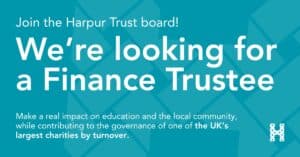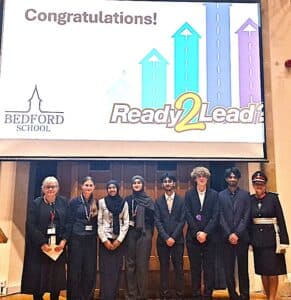Our aim is for everyone to have pride in our community. We give grants to local community projects and awarded more than £11 million over the last 10 years.
Grants for Charities & Community Groups
Supporting the local community through our grants programme is a core part of what we do at The Harpur Trust. We award more than £1 million a year in grants and provide essential funding to charities and community groups, which run projects to help improve the lives of others in Bedford Borough.
Eligibility
Your project must align with one or more of our charitable objects:
- Education
- Relief of poverty, sickness or distress
- Recreation with a social welfare purpose
Your organisation must:
- Be a registered charity, Community Interest Company (CIC) Ltd by Guarantee or other non-profit organisation.
- Have a suitable governing document (e.g. constitution/articles).
- Have a committee of at least three unrelated people/trustees/directors.
- Be seeking funding for projects that specifically help people in Bedford Borough. Your project must fall within the boundaries outlined in this map.
Examples of the kind of projects and costs we fund
- Types of costs: We will consider requests for staffing, running and capital costs for projects and core services. If relevant to you, see our guidance on full cost recovery.
- Work in schools: Applications for projects in schools should explain how the work will be sustained after the project has ended or provide a legacy within the school, and how the project fits with the school improvement priorities. Organisations delivering projects in schools should have secured the agreement of the schools they will work with, and if possible, co-designed the project with them.
- Counselling: Any projects including an element of counselling for adults or children and young people should include details about the service and qualifications of counsellors. We require that counsellors meet minimum qualification levels – please contact us if you’d like more information.
- Sports or recreational activities: We fund sports and recreation where there is a clear social welfare purpose, and inclusion of disadvantaged people is key. This includes strengthening the local community and promoting mental or physical health. We do not fund the pursuit of sporting excellence.
- Community sports clubs seeking funding are expected to show how a project is accessible, inclusive, will reach beneficiaries from broad communities, and how the facility is valued as a community asset. We are unlikely to fund sports clubs more regularly than once every five years.
- Organisations can apply for multi-year or repeat funding. Decisions are made based on clear evidence of need and impact. Sometimes when demand is very high we can only offer one year of a multi-year request.
What we don’t fund
- Projects that promote a particular religion, although we do fund faith groups for secular work which is open to all regardless of faith.
- Salaries for posts only open to people from a particular faith.
- Projects which we consider to be the responsibility of the local authority or national government, such as statutory obligations to deliver core curriculum in schools.
- Core costs for alternative provision agencies, though we may fund project costs.
- We will not fund school staff salaries.
- Supplementary schools which are for communities other than those which historically struggle to benefit from formal education.
- Unsolicited applications for school capital projects.
- Repeat or long-term funding for specific projects in individual schools.
- Hospital projects, capital or otherwise.
- Complementary or alternative therapies unless they are part of a general well-being proposal.
- Standalone events (please see information about event sponsorship on our website).
- Costs already incurred, depreciation or lost opportunity costs (for example, funding requested to replace income lost by providing a venue for free rather than charging).
- Standalone trips and expeditions.
- Unsolicited requests for funding for university research projects.


